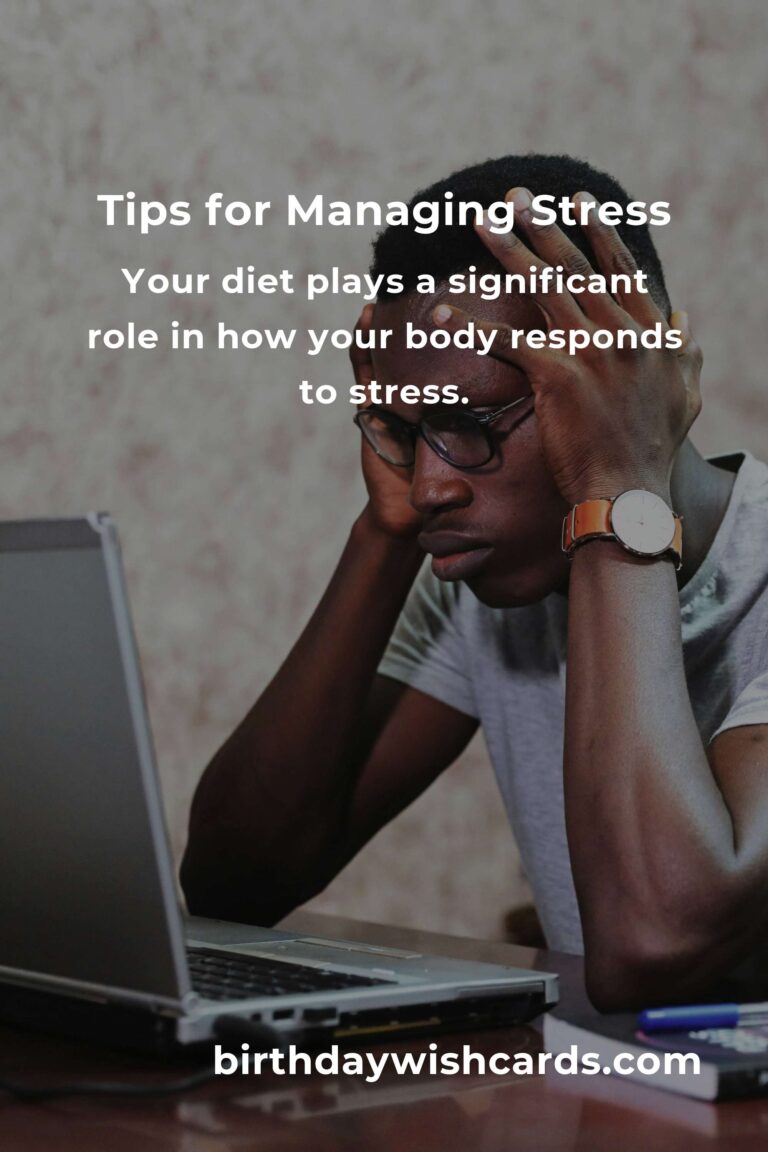
In today’s fast-paced world, stress has become an almost inevitable part of our lives. While a certain level of stress can be beneficial as a motivator, chronic stress can lead to a host of health problems, including anxiety, depression, and cardiovascular issues. Therefore, learning effective stress management techniques is crucial for maintaining both mental and physical health.
In this article, we will explore six effective tips for managing stress that can easily be incorporated into your daily routine. These strategies are designed to help you reduce stress and improve your overall well-being.
1. Practice Mindfulness Meditation
Mindfulness meditation is a powerful stress management tool that involves focusing your attention on the present moment. By practicing mindfulness, you can reduce the negative impact of stress by becoming more aware of your thoughts and feelings without judgment. This can help you develop a better understanding of your stress triggers and how to manage them effectively.
Start by setting aside a few minutes each day to sit quietly and focus on your breathing. As you breathe in and out, pay attention to the sensations in your body and the thoughts that come to mind. With regular practice, mindfulness meditation can help you become more centered and less reactive to stressful situations.
2. Engage in Regular Physical Activity
Exercise is one of the most effective ways to combat stress. Physical activity stimulates the production of endorphins, which are natural mood lifters. Regular exercise can also improve your sleep, boost your self-esteem, and help you feel more relaxed overall.
Whether you prefer running, yoga, swimming, or dancing, find an activity that you enjoy and make it a regular part of your routine. Aim for at least 30 minutes of moderate exercise most days of the week to reap the stress-reducing benefits.
3. Maintain a Healthy Diet
Your diet plays a significant role in how your body responds to stress. Consuming a balanced diet rich in fruits, vegetables, lean proteins, and whole grains can help stabilize your mood and energy levels.
Avoid excessive caffeine, sugar, and processed foods, as they can contribute to increased stress and anxiety. Instead, opt for nutrient-dense foods that support overall health and well-being.
4. Get Enough Sleep
Lack of sleep can exacerbate stress and make it more challenging to cope with daily pressures. Aim for 7-9 hours of quality sleep each night to help your body recover and manage stress effectively.
Establish a regular sleep schedule by going to bed and waking up at the same time each day. Create a relaxing bedtime routine by avoiding screens, caffeine, and stimulating activities before bed. A good night’s sleep can significantly reduce stress levels and improve your mood.
5. Build a Strong Support Network
Having a strong support network can help you manage stress more effectively. Surround yourself with positive and supportive people who can offer guidance, encouragement, and a listening ear when you need it most.
Don’t hesitate to reach out to friends, family, or mental health professionals if you’re feeling overwhelmed. Sharing your feelings with others can provide a sense of relief and help you gain new perspectives on your stressors.
6. Practice Relaxation Techniques
Incorporating relaxation techniques into your daily routine can help reduce stress and promote a sense of calm. Techniques such as deep breathing, progressive muscle relaxation, and visualization can help you unwind and manage stress effectively.
Try setting aside a few minutes each day to practice these relaxation techniques. Over time, you’ll find that they become a valuable tool for managing stress and enhancing your overall well-being.
By incorporating these tips into your daily routine, you can take control of your stress and improve your quality of life. Remember, the key to effective stress management is consistency and a willingness to try new strategies until you find what works best for you.
In today’s fast-paced world, stress has become an almost inevitable part of our lives. Mindfulness meditation is a powerful stress management tool that involves focusing your attention on the present moment. Exercise is one of the most effective ways to combat stress. Your diet plays a significant role in how your body responds to stress. Lack of sleep can exacerbate stress and make it more challenging to cope with daily pressures. Having a strong support network can help you manage stress more effectively.
#StressManagement #Mindfulness #HealthyLiving #StressRelief #MentalHealth #Wellness













